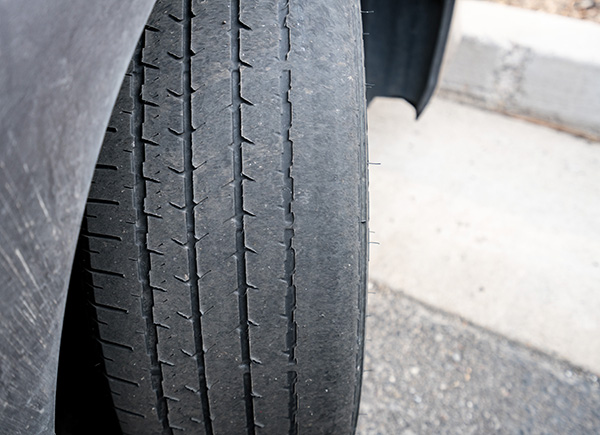
Your vehicle’s tires are very important for safety. Yet, they’re often overlooked until a problem arises. Driving on bald tires—tires that have worn down to minimal tread depth—can pose serious safety risks. Whether you’re navigating snowy streets or simply commuting on dry pavement, worn tires compromise your vehicle's performance and your safety. Let’s explore the dangers of bald tires and why promptly addressing the issue is crucial.
Reduced Traction on Wet Roads
One of the most significant risks of bald tires is reduced traction, especially on wet or slippery roads. Tires are designed with grooves to channel water away and maintain contact with the road. When the tread wears down, this ability diminishes, leading to an increased likelihood of hydroplaning.
Hydroplaning occurs when a layer of water builds between the tire and the road surface, causing the vehicle to lose grip. Without adequate tread, your car’s ability to brake or steer effectively is significantly reduced, which can lead to accidents. This is especially concerning during Colorado’s unpredictable weather, where rain or snow can appear without warning.
Longer Braking Distance
Worn-out tires drastically increase the distance it takes for your car to come to a complete stop. The reduced grip means your tires can’t “bite” into the road as effectively, particularly during sudden braking situations.
Imagine driving on a busy Denver street and needing to stop quickly to avoid a pedestrian or another vehicle. With bald tires, the added stopping distance could mean the difference between a close call and a collision. Keeping your tires in good condition ensures your braking system performs as intended.
Higher Risk of Blowouts
Tires with minimal tread are more prone to blowouts. As the rubber wears thin, it becomes less capable of handling heat, friction, and impacts from potholes or debris. A sudden blowout while driving can lead to a loss of control, endangering not just you but everyone else on the road.
Blowouts are particularly hazardous at high speeds, such as when driving on highways. Maintaining proper tire tread helps reduce the risk of such catastrophic failures and keeps you and your passengers safer.
Poor Performance in Snow and Ice
Living in Denver means dealing with winter conditions, and bald tires are especially dangerous in snow and ice. Tread patterns are essential for providing the traction needed to navigate slippery roads safely. Without them, your tires can’t grip the icy surface, making it harder to accelerate, turn, or stop.
Bald tires also lack the ability to dig into the snow, which can leave you stuck or sliding uncontrollably. Investing in quality tires and replacing them when the tread wears down is key to staying safe during Colorado’s snowy months.
Decreased Fuel Efficiency
Driving on bald tires doesn’t just put you at risk—it also affects your wallet. Tires with minimal tread create more rolling resistance, meaning your engine has to work harder to move the car. This extra effort translates to reduced fuel efficiency and higher gas bills over time.
Replacing your worn tires not only improves safety but can also save you money in the long run. By maintaining proper tread depth and tire condition, you’ll get better mileage and lower fuel costs.
Legal and Financial Consequences
In many states, including Colorado, driving on bald tires can lead to fines or failed vehicle inspections. The law typically requires a minimum tread depth of 2/32 of an inch, and driving on tires that fall below this threshold is considered unsafe.
If you’re involved in an accident and it’s determined that bald tires contributed to the incident, you could face increased liability. Insurance companies may refuse to cover damages, leaving you responsible for costly repairs and legal fees.
How to Prevent the Risks of Bald Tires
The good news is that the dangers of driving on bald tires are entirely preventable with proper care and maintenance. Regularly inspecting your tires for wear and tear, checking air pressure, and rotating them according to your vehicle manufacturer’s recommendations can help extend their lifespan.
Your safety is our priority. Don’t wait for an accident to address bald tires. Head to Mancinelli’s Auto Repair Center in Denver, CO, where we provide expert tire inspections and solutions you can trust. Call or visit us today!